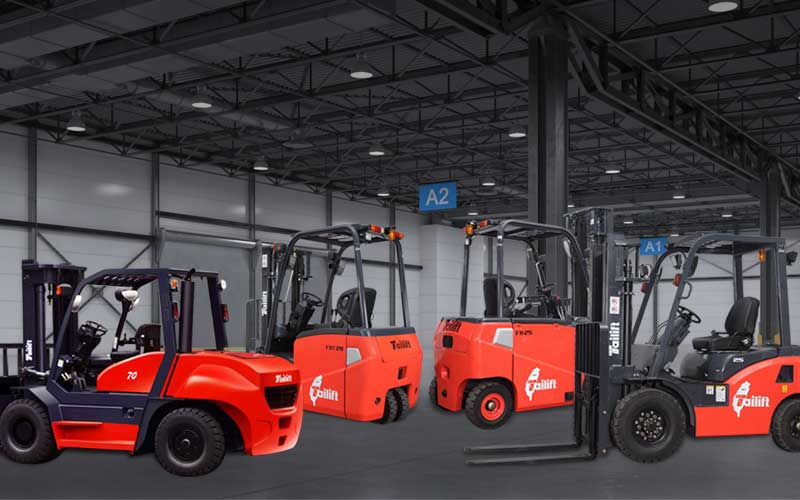
Workhorse or in other words a forklift is a vehicle used for multiple purposes mainly for carrying heavy loads in industrial applications. They are used for transporting goods in indoor warehouses and distribution centres also for moving outdoor products, construction sites, ship dockyards or ports, ploughing snow and so on.
In a typical warehouse, electric workhorse is used for stacking materials both small and heavy ones in places where it is not easy for humans to reach. Here we offer you to move your loads with us
The amount of workload determines the actual need of a forklift, that is to say, depending upon the kind of work implies the type of workhorse in a warehouse. The most popular ones are electric forklifts which run on industrial batteries (lithium-ion or lead acid) and electric motor. They cause fewer emissions and are much quieter than their internal combustion equivalents. As a direct result of this, electric forklifts are often seen indoors unloading tractor- trailers and handling pallets. On the other hand, diesel forklifts or CNG, LPG or Gasoline workhorse are mainly for outdoor warehouse facilities. These trucks usually come with pneumatic tires specifically built for rough work environments. They have mast width around 2067mm and can lift goods ranging from 3,000 to 55,000 lbs. These trucks can be seen loading & unloading of large or hefty containers or equipments. For construction sites or dockyards, rough terrain forklifts are ones mostly worn by operators because of their massive tires and having a lifting capacity of 6,000- 12,000 lbs or more. Workhorses are an essential key to warehouse efficiency without which it is impossible for any industry to operate.
Ineffective workhorse use can lead to loss of productivity or other reasons like wasted travel time and other such problems leading to slow down of warehousing operations. As a matter of fact, workhorses are warehouse assets resulting in optimal facility layout.
Another important point is the safety of the forklifts and certified trained operators to handle the forklifts. If an accident occurs in the warehouse, the entire blame will go to the owner, that’s why it’s paramount to train all the employees on all safety procedures.
Warehousing operations are a large part of any industry, therefore its important for centre to understand the risks and benefits of potential warehouse changes before making any investment in workhorse and facility layout. Every industry should assess forklift use and other essential facets of warehousing operations to assure that they are being used efficiently. A successful warehouse is one where goods are carried with proper efficiency.